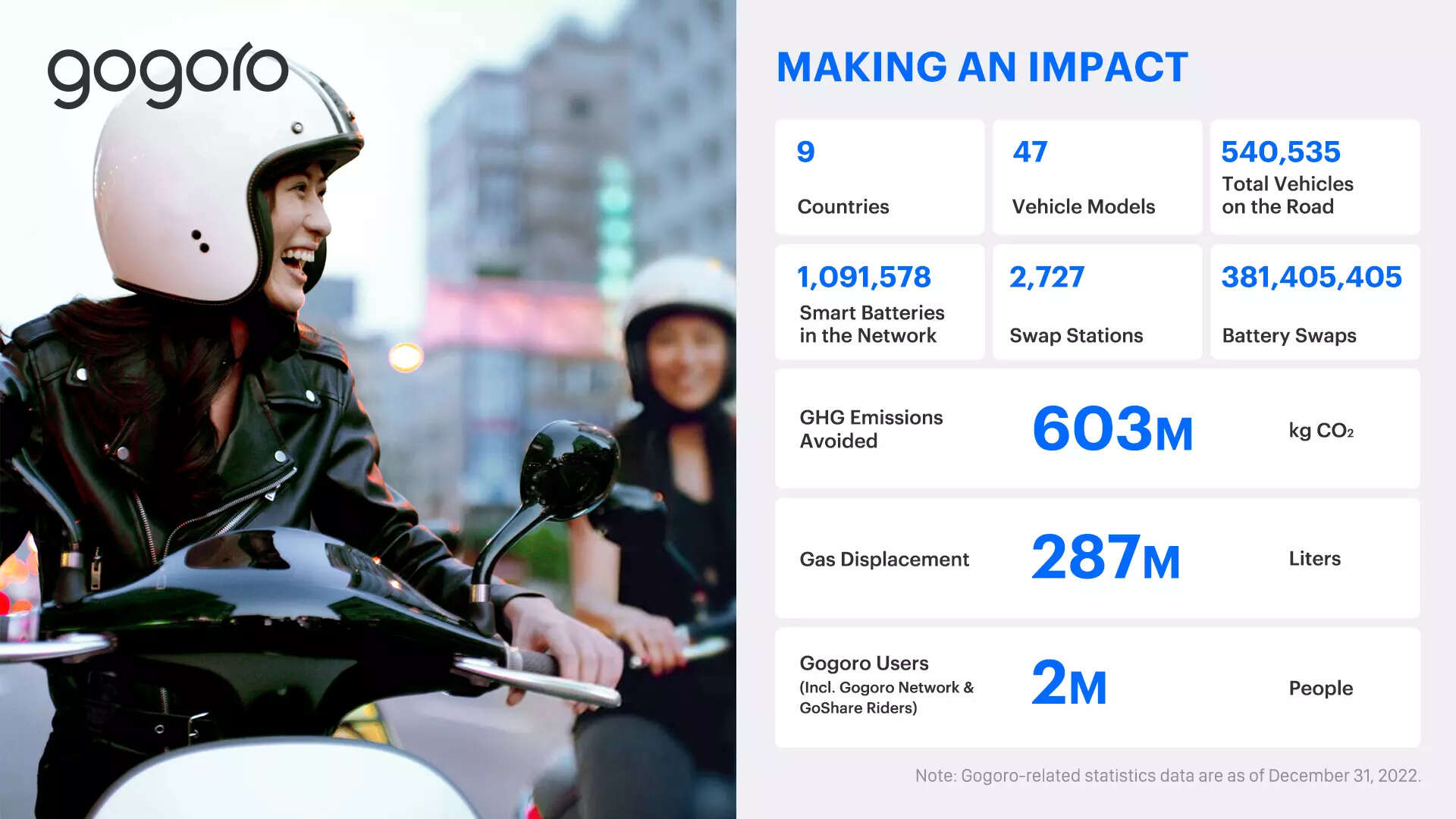
Gogoro Inc., a global technology leader in battery swapping ecosystems, today released its first impact report. The Impact Report highlights Gogoro’s progress in sustainability and ESG and outlines how Gogoro battery swapping and Smartscooters have been successful in enabling the transformation to sustainable urban transportation.
“What a difference a decade makes. Ten years ago, few were contemplating the urban energy and transportation transformation or addressing the plight that cities were facing because of air pollution and other negative effects of climate change. We started Gogoro to address these challenges and fundamentally change urban transportation for the better, and we are making progress. Today, we are introducing our first Gogoro Impact Report to highlight this progress we’ve made in our ESG initiatives and outline our future intentions,” said Horace Luke, founder, and CEO of Gogoro.
“This report summarizes our commitments and progress in four key strategic areas: a cleaner planet, safety and resilience, responsible business, and social impact. We believe these four areas are key to our success in achieving smarter, cleaner, and safer cities.”
With nearly 2 million customers and 400 million battery swaps to date, Gogoro has established an open 360-degree ecosystem that is AI-powered and cloud-connected, to deliver the most accessible urban energy solution. The system is constantly learning, adjusting, and optimizing the smart batteries and swapping stations to enable a variety of smart city solutions.
Gogoro’s research clearly indicated that the adoption of two-wheel EVs is already making a meaningful difference. Two and three wheelers are widely used for daily commutes in most megacities, especially in Asia and Africa.
The adoption of two- and three-wheel EVs is already making meaningful progress, as the oil displacement from two- and three-wheel EVs is approximately five times that of four-wheel passenger EVs. Due to a combination of policy support, growing customer acceptance, improvements in battery technology, and new compelling models from vehicle makers, we expect the adoption of two- and three-wheel EVs will continue to accelerate.
Gogoro’s battery swapping system not only allows users to refuel their electric scooters quickly and easily, but it also has the potential to integrate renewable power into electricity grids through virtual power plants and demand response programs. By leveraging these technologies and approaches, Gogoro aims to contribute to the development of more sustainable and efficient urban environments.
Gogoro began purchasing renewable energy in Taiwan in 2022 to reduce scope 2 emissions from its manufacturing, retail operations, and battery swapping service. With a long-term goal of achieving 100 percent renewable energy, it achieved 40 percent renewable energy in its factory operations and at two retail stores in 2022.
Also Read:
